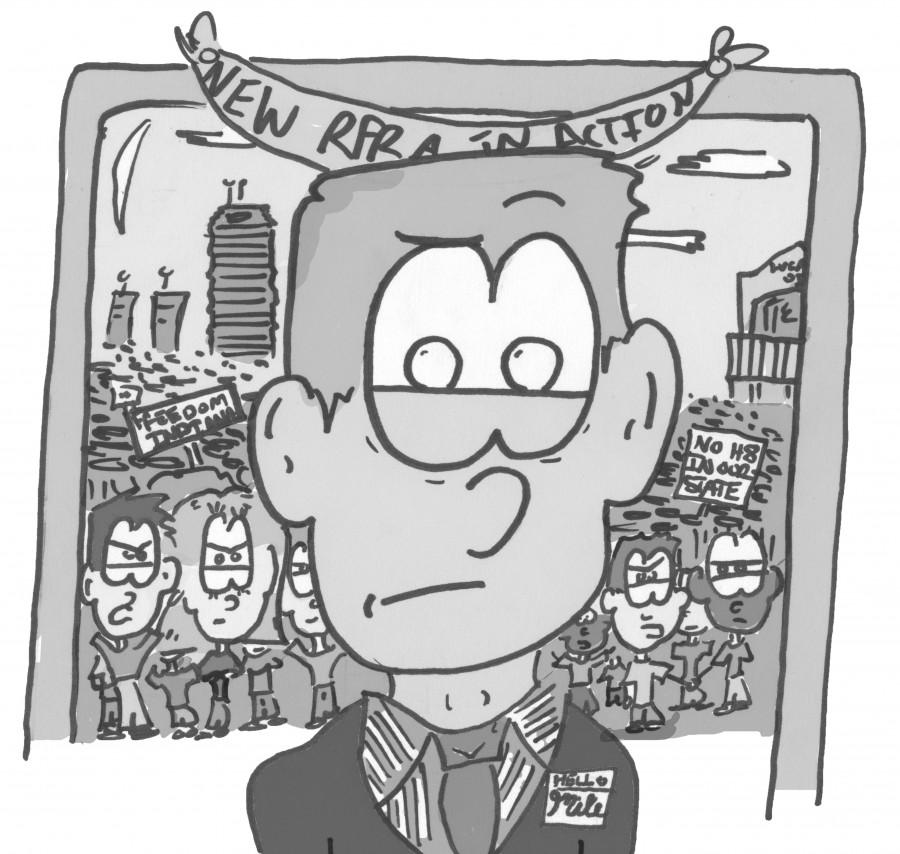Why fix what isn’t broken?
May 4, 2015
On Thursday, April 2, one of the most controversial pieces of Indiana legislature was signed into law. Those supporting Governor Mike Pence in his decision to sign the bill call it a just upholding of the freedom of religion. Critics of the bill see its passing as a step backwards in time. The opposition calling it a tool for discriminating others, specifically those of the gay, lesbian, bisexual, or transgender (LGBT) community. In my opinion, the Religious Freedom Reformation Act (RFRA) has well intent, titularly supporting our religious freedom in America. However, due to allegedly inadvertent discrepancies in the wording, the door is open to discrimination, with no repercussions. But what exactly is the RFRA?
The version of RFRA that was passed in Indiana is almost the same RFRA, initiated by the Clinton administration, that has already been passed in 19 other states and at the federal level. The key word here is “almost.” All iterations of the bill prevent the government from interfering in matters of religion that the government itself perceives as not infringing on the government’s business. When an issue that demands attention arises, the bill dictates that the government deal with it in the least restrictive manner possible. The main differences between the Indiana iteration and its parent bills are as follows:
- For-profit corporations are explicitly protected by the RFRA where other religious freedom acts clearly exclude for-profits, and
- In private proceedings, a defense can be built solely on the right to religious freedom. This means that if one party is sued and brought to court, that party can claim that they were working under the beliefs of their religion which will be considered sufficient defense.
It is these two differences that have the nation in an uproar and rightly so. It is now possible for a anyone, and anything, to impose their religious ideology with impunity.
But nowhere in the text does it say that any person or group of people are to be discriminated against. So, are the supporters of the bill correct in saying that it has nothing to do with discrimination? No, not exactly. It enables discrimination, even in a place of business, if they were acting under their religious beliefs. In my opinion, this is where the issue lies.
Businesses, as an entity and not a human being, cannot have religious views and people working for the business are acting for the business and not as themselves. Therefore, without the religious views that might discriminate one customer from another, a business has no right to deny service or judge in any other manner. Obviously, the main and only mission of a for-profit organization is to make profit and showing prejudice in such a way as to turn away people with different views is the definition of counterproductive.
Luckily, due to the general anger caused by RFRA, there are currently talks in progress to reword the bill to amend any concerns of discrimination. Until then, if you feel the same as I do, try to avoid businesses who discriminate, even if you are not affiliated to the groups discriminated against. It is the only way a high school student can show discontent with the injustice that has been legalized in our state.




